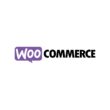In today’s fast-evolving digital landscape, B2B e-commerce platforms are increasingly seeking robust solutions to streamline their operations and enhance customer experiences. Salesforce Commerce for B2B stands out as a comprehensive tool designed to meet these demands. This article delves into its key features, performance metrics, pros and cons, and provides expert insights, alongside addressing frequently asked questions, to offer a thorough review of Salesforce Commerce for B2B E-Commerce Platforms Software.
Key Features of Salesforce Commerce for B2B E-Commerce Platforms Software
Salesforce Commerce for B2B E-Commerce Platforms Software stands out in the market for its comprehensive suite of features designed to cater to the unique needs of business-to-business transactions. Its key features include:
- Customer Personalization: Salesforce Commerce leverages AI-driven recommendations and personalization, enabling businesses to tailor the shopping experience for each customer. This includes personalized product recommendations, custom pricing, and targeted promotions based on customer behavior, purchase history, and preferences.
- Seamless Integration: One of the software’s strengths is its ability to integrate seamlessly with other Salesforce solutions, such as Salesforce CRM, Marketing Cloud, and Service Cloud. This integration facilitates a unified view of the customer across all touchpoints, improving customer service, marketing strategies, and overall operational efficiency.
- Cloud-Based Architecture: Being cloud-based, Salesforce Commerce for B2B allows for scalability and flexibility. Businesses can easily scale their operations up or down based on demand without worrying about infrastructure limitations. This cloud architecture also ensures high availability and reduced downtime, which is crucial for maintaining a reliable online presence.
- Multi-Channel Selling: The platform supports multi-channel selling, enabling businesses to manage sales across various channels from a single interface. Whether it’s through web storefronts, mobile apps, or social media platforms, Salesforce Commerce provides a consistent and cohesive customer experience.
- Advanced Analytics and Reporting: With built-in analytics and reporting tools, Salesforce Commerce offers deep insights into business performance, customer behavior, and sales trends. These insights enable businesses to make data-driven decisions to optimize their e-commerce strategies.
- Order Management and Fulfillment: The platform includes robust order management and fulfillment capabilities, streamlining the entire process from order placement to delivery. Features such as real-time inventory visibility, automated order processing, and flexible shipping options help improve operational efficiency and customer satisfaction.
- B2B-specific Features: Salesforce Commerce for B2B is designed with the specific needs of B2B transactions in mind, including bulk ordering, complex pricing models, contract pricing, and account hierarchies. These features facilitate the management of B2B relationships and transactions, making it easier for businesses to serve their customers effectively.
Performance
Evaluating the performance of Salesforce Commerce for B2B E-Commerce Platforms Software involves considering its impact on operational efficiency, scalability, customer satisfaction, and overall business growth. The platform’s design and features contribute significantly to its performance in these key areas:
- Operational Efficiency: Salesforce Commerce for B2B excels in streamlining business operations through automation and integration. By automating routine tasks such as order processing, inventory management, and customer segmentation, the platform frees up valuable time for businesses to focus on strategy and growth. The seamless integration with other Salesforce products enhances data flow across departments, leading to more informed decision-making and a cohesive operational approach.
- Scalability: The cloud-based nature of Salesforce Commerce allows B2B e-commerce platforms to scale their operations flexibly. Businesses can adjust their resources according to demand, handling peak periods without the need for significant upfront investment in infrastructure. This scalability is crucial for growing businesses that need to adapt quickly to market changes and customer demands.
- Customer Satisfaction: Salesforce Commerce for B2B is designed with a strong focus on creating personalized and engaging customer experiences. Features like AI-driven personalization, targeted promotions, and multi-channel support ensure that customers receive a consistent and customized shopping experience across all touchpoints. This level of personalization and convenience can significantly enhance customer satisfaction and loyalty.
- Business Growth: By providing detailed analytics and reporting tools, Salesforce Commerce for B2B helps businesses track performance, identify trends, and uncover insights into customer behavior. These insights are invaluable for optimizing marketing strategies, refining product offerings, and ultimately driving sales growth. The platform’s comprehensive feature set supports various aspects of business operations, from lead generation to customer retention, contributing to overall business success.
- Reliability and Uptime: Salesforce Commerce’s cloud infrastructure is designed for high availability, ensuring that B2B e-commerce platforms remain operational and accessible to customers around the clock. This reliability is crucial for maintaining trust and satisfaction among business customers, who often operate on tight schedules and cannot afford delays in order processing or fulfillment.
- Security: Security is a top priority for Salesforce Commerce, which includes robust security measures to protect sensitive customer and business data. Compliance with industry standards and regulations helps businesses mitigate risks and build trust with their customers.
Pros
Cons
Final Thoughts
Unique Value Propositions
- Unified Customer View: Salesforce Commerce’s integration with the broader Salesforce ecosystem, including CRM, Marketing Cloud, and Service Cloud, provides businesses with a 360-degree view of their customers. This unified view enables a deeper understanding of customer needs, behaviors, and preferences, facilitating personalized engagement strategies and improved customer service.
- AI-Driven Personalization and Efficiency: Leveraging Salesforce’s AI technology, Einstein, Salesforce Commerce offers advanced personalization capabilities. It can predict customer preferences, recommend products, and automate tasks to enhance efficiency. This level of personalization and automation is crucial for meeting the high expectations of today’s B2B buyers.
- Scalable, Cloud-Based Infrastructure: The platform’s cloud-based nature ensures scalability and flexibility. Businesses can easily adjust their operations in response to market demand without significant downtime or investment in physical infrastructure. This aspect is particularly valuable for growing companies looking to expand their reach without being hampered by technological constraints.
- Comprehensive Multi-Channel Support: In today’s digital age, B2B buyers are not confined to a single channel. Salesforce Commerce accommodates this reality by supporting a multi-channel approach, allowing businesses to interact with customers through various channels (web, mobile, social media) while maintaining a consistent and cohesive experience.
- Global Commerce Capabilities: With support for multiple languages and currencies, along with localized payment and shipping options, Salesforce Commerce is equipped to handle global commerce operations. This enables businesses to expand their reach internationally with relative ease.
- Community and Ecosystem: Beyond its technical capabilities, Salesforce Commerce benefits from a vibrant community of developers, partners, and experts. This ecosystem fosters innovation, offers extensive support, and provides a wealth of third-party apps and integrations, enhancing the platform’s capabilities and flexibility.
Expert Perspective
Experts in the field often highlight the strategic advantage of adopting a platform that not only solves current operational challenges but also anticipates future trends and customer needs. Salesforce Commerce for B2B is lauded for its proactive approach to digital commerce, continuously evolving with advancements in AI, data analytics, and customer experience technologies. The emphasis on creating personalized, efficient, and scalable B2B commerce experiences aligns with the direction in which the digital marketplace is headed, positioning Salesforce Commerce as a forward-thinking choice for businesses aiming to lead in their respective industries.
In conclusion, Salesforce Commerce for B2B E-Commerce Platforms Software offers a distinctive blend of innovation, scalability, and comprehensive integration capabilities. Its focus on leveraging AI for personalization, supporting multi-channel sales strategies, and enabling global commerce operations are key factors that set it apart in the competitive landscape of B2B e-commerce solutions. These unique attributes, combined with the platform’s ability to adapt to the evolving digital commerce ecosystem, provide a compelling value proposition for businesses looking to enhance their B2B commerce operations.





